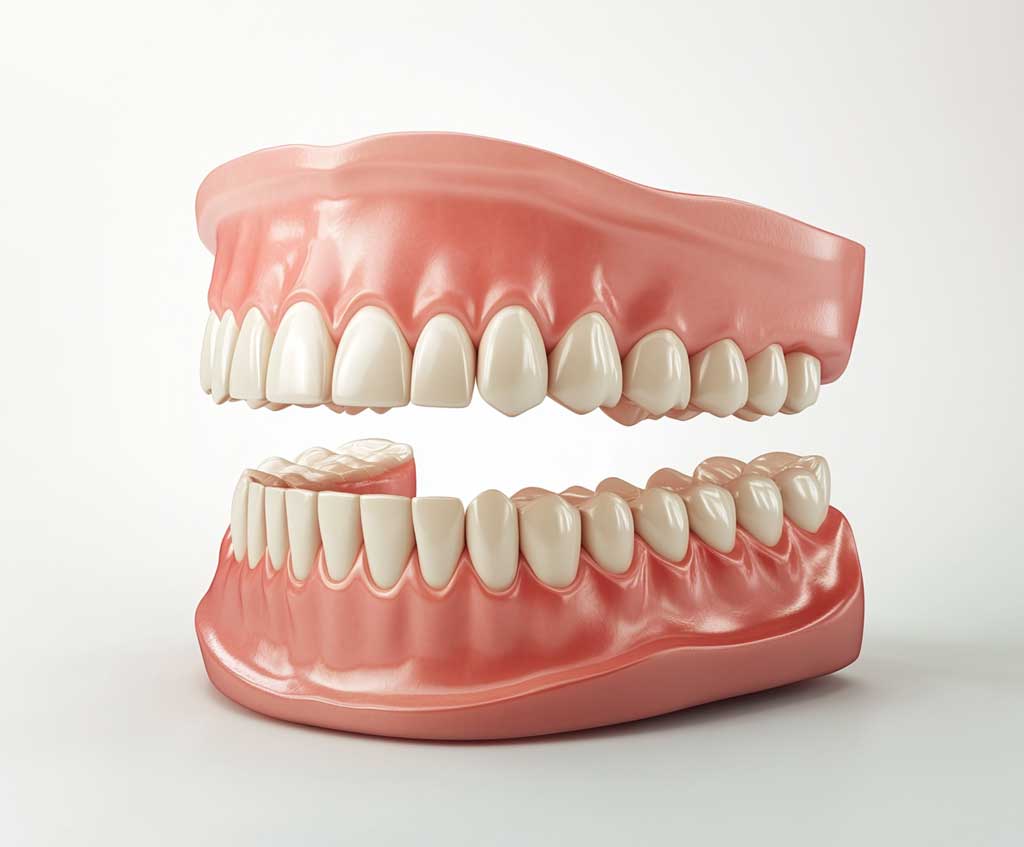Teeth grinding, also called bruxism, is when you grind or clench your teeth without being aware of the habit, typically during sleep. This can lead to a range of dental problems if left untreated. Understanding what causes teeth grinding and the treatments available can help sufferers manage and reduce symptoms.
What Causes Teeth Grinding?
There are several potential causes of teeth grinding:
- Stress and Anxiety – High levels of stress or anxiety are commonly linked to teeth grinding. The repetitive motion may act as a coping mechanism for inner turmoil. Stress at work, relationship difficulties, financial pressures or traumatic events can trigger bruxism.
- Aggressive Personality – Some research indicates that people with competitive, hyperactive or aggressive personality types are more likely to grind their teeth. However, personality is not considered a direct cause.
- Genetics – Bruxism sometimes runs in families, suggesting a genetic factor. Having a close relative who grinds their teeth increases your risk.
- Medications – Some antidepressants, antipsychotics and medications for Parkinson’s disease list teeth grinding as a potential side effect. Ask your doctor if any medicines could be contributing.
- Sleep Disorders – Conditions like sleep apnoea which disturb normal sleep patterns are associated with a higher prevalence of bruxism. The lack of restful REM sleep may cause you to grind your teeth.
- Misaligned Bites – Having crooked teeth, misaligned jaws or improper dental work can put some people at higher risk of bruxism. The asymmetry may cause you to involuntarily grind your teeth.
Treatments and Remedies
If you suffer from teeth grinding, there are several remedies and interventions to try:
- Stress Management – Developing healthy stress coping strategies through counselling, relaxation techniques, exercise or lifestyle changes can help reduce anxiety and grinding frequency.
- Dental Guards/Mouth Guards – Your dentist can fit a custom dental guard that is worn in the mouth at night to protect your teeth from grinding damage. This is one of the most effective treatments.
- Physiotherapy – Gentle jaw and facial muscle exercises can help relieve temporomandibular joint (TMJ) pain and relax the chewing muscles. Massage may also help.
- Medication – For severe bruxism, some anticonvulsant or muscle relaxant medications can be prescribed to reduce grinding at night. These may have side effects.
- Botox Injections – Botox injections into the chewing muscles paralyses them temporarily, preventing clenching and grinding. However, this requires repeated injections every 3-4 months.
- Behavioural Therapies – Hypnosis, biofeedback or cognitive behavioural therapy (CBT) may help retrain the body and mind to stop the grinding habit. Success rates vary.
Jaw Slimming Treatments
Bruxism can lead to a square, wide jawline over time as the masseter muscles become enlarged from constant overuse. Jaw slimming treatments like jaw slimming Botox London injections and surgical procedures can reshape and slim the lower face by reducing the masseter muscle bulk. Jawline slimming Botox in London helps create a narrower, oval jawline for a slimmer facial contour and balanced facial proportions.
Consult your dentist if you notice symptoms of teeth grinding or have unexplained chips or cracks in your teeth. While not always preventable, the condition is highly treatable using both dental and medical interventions for protection and pain relief.




